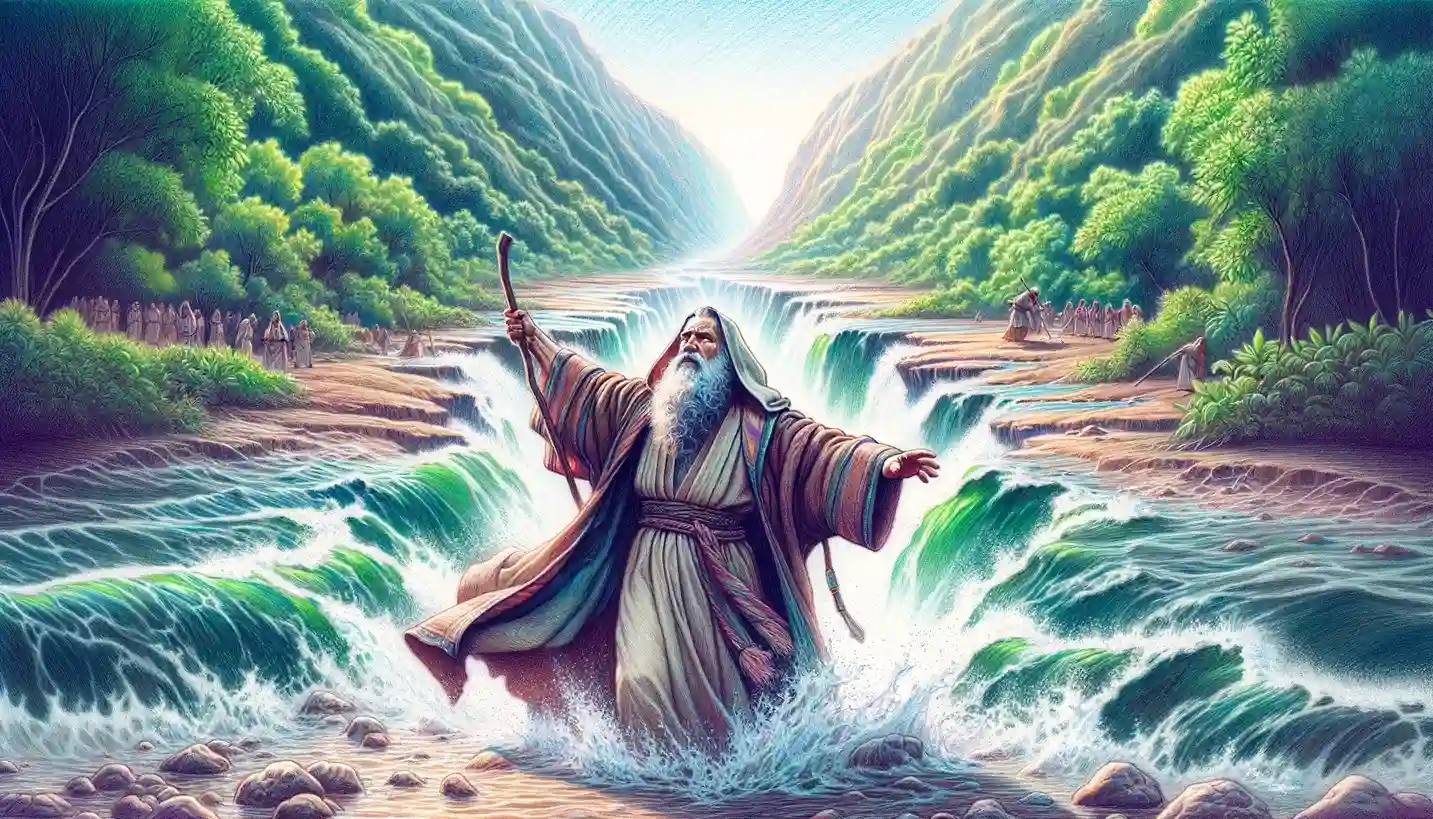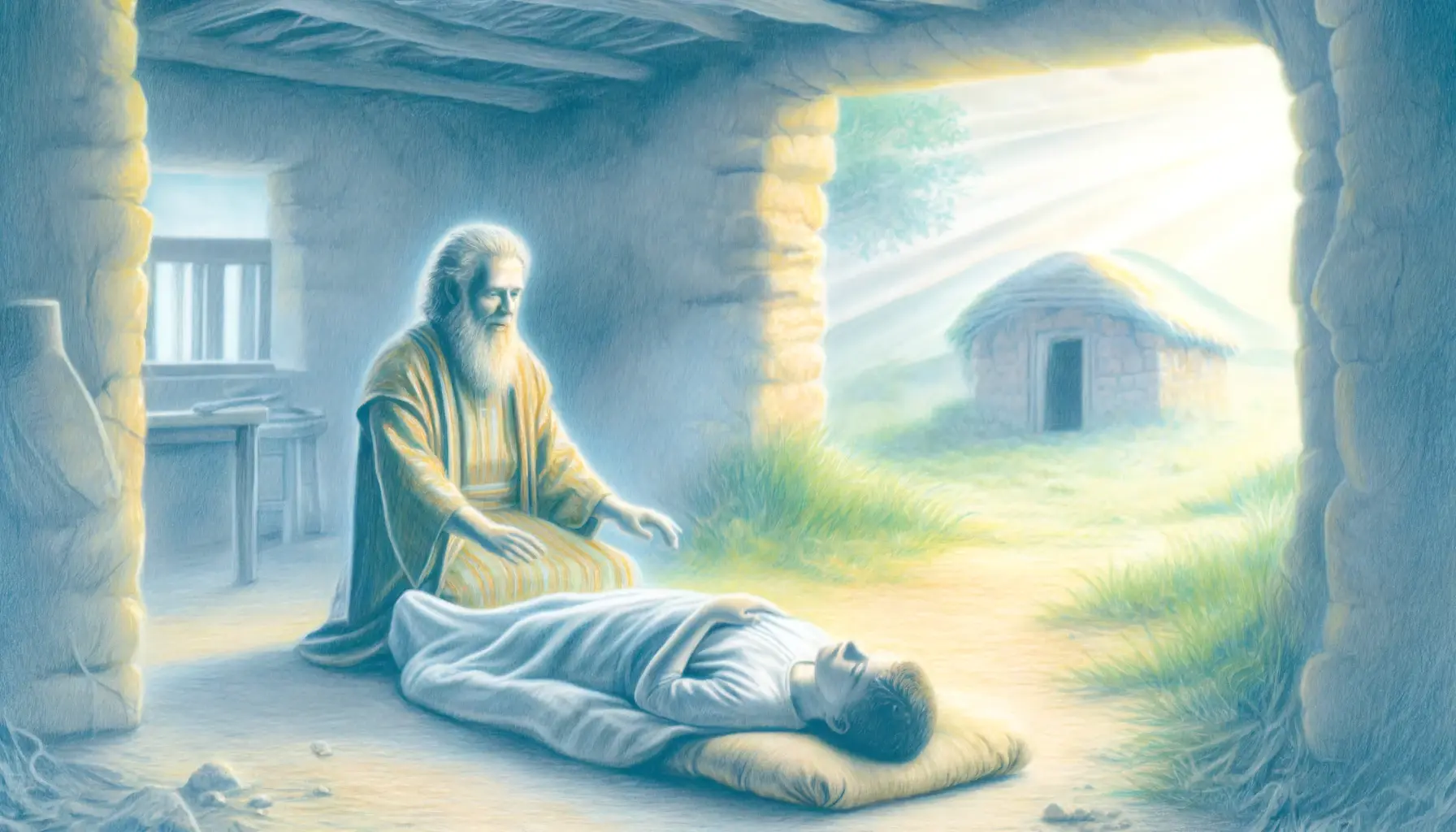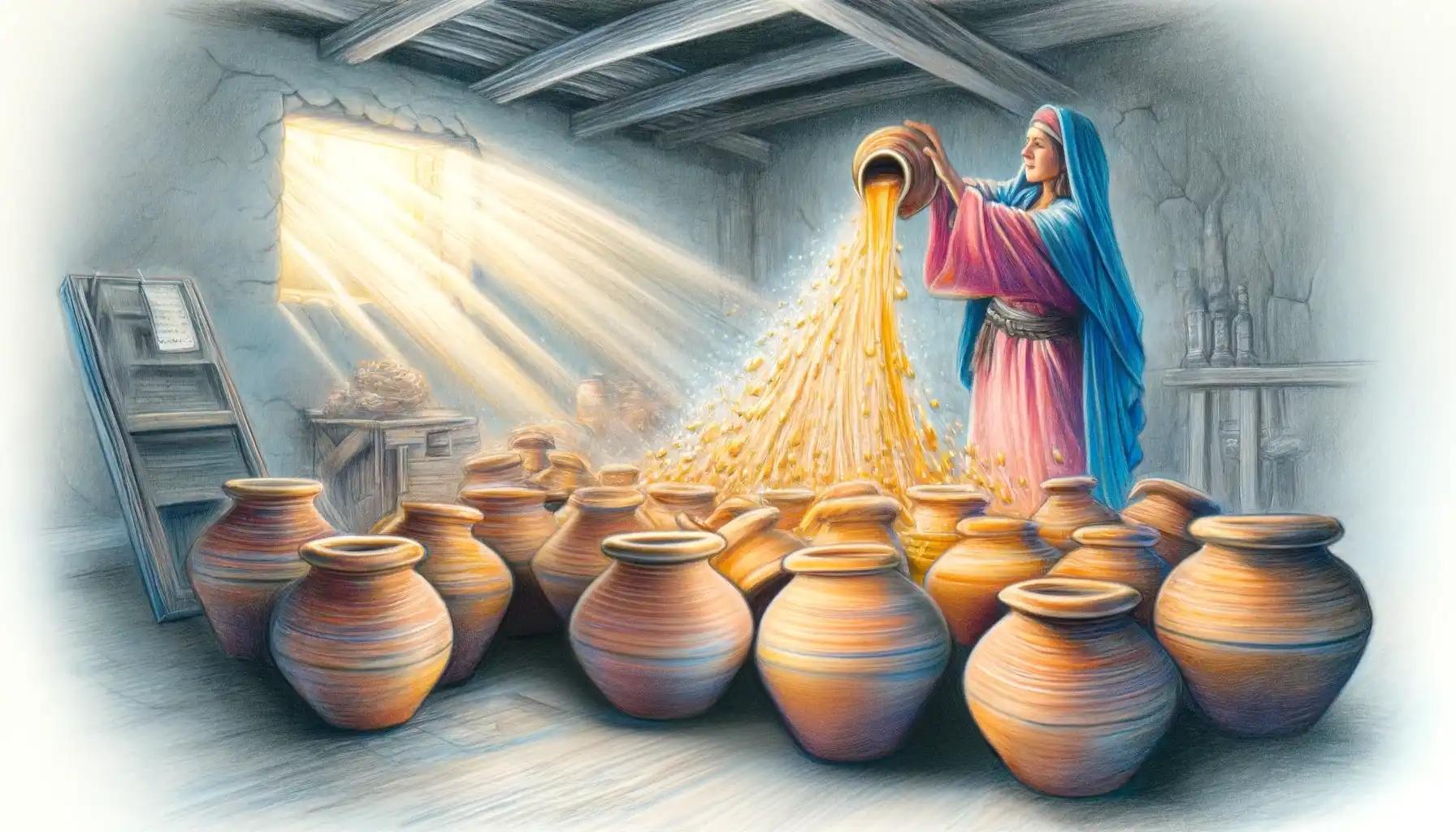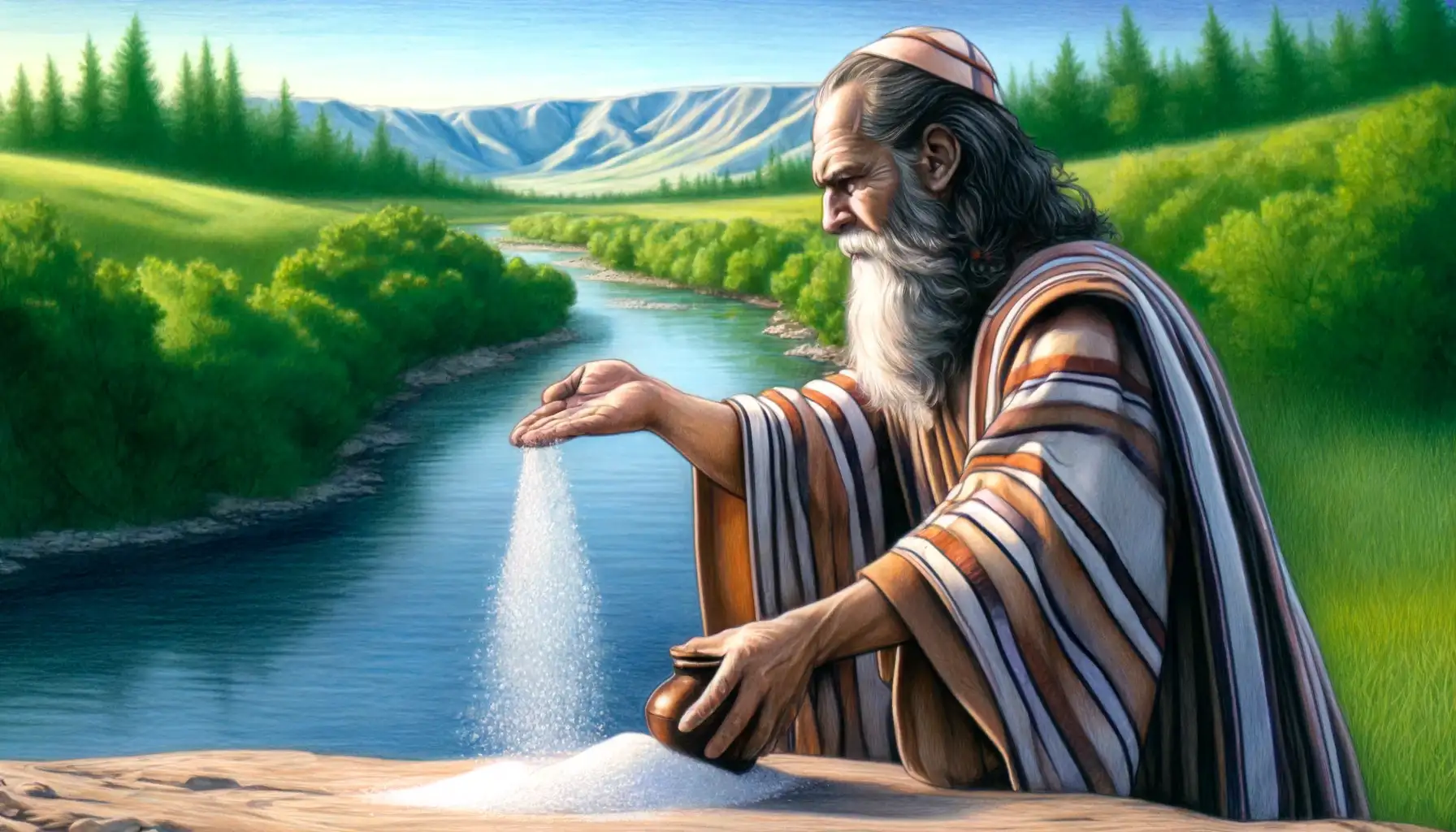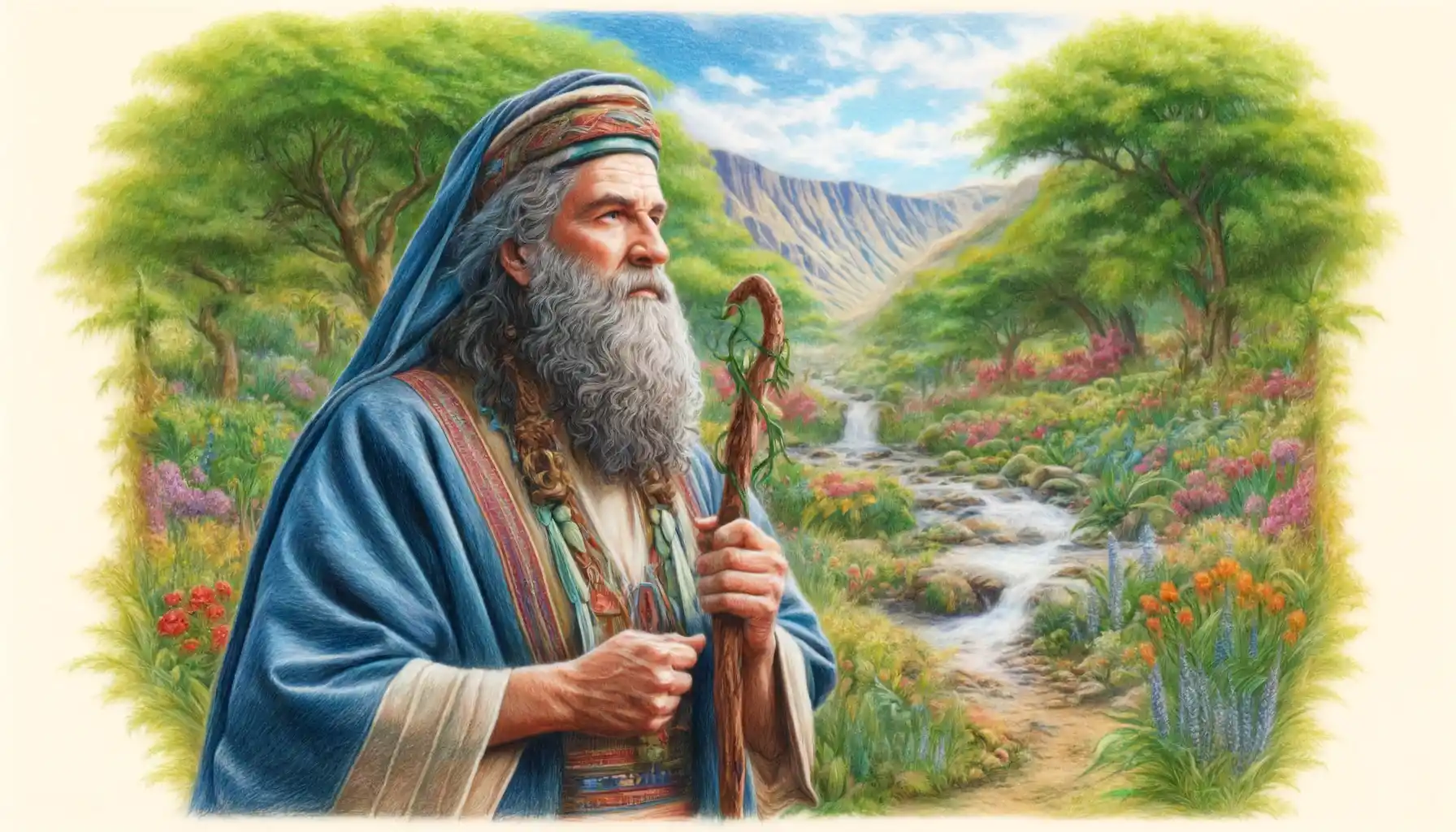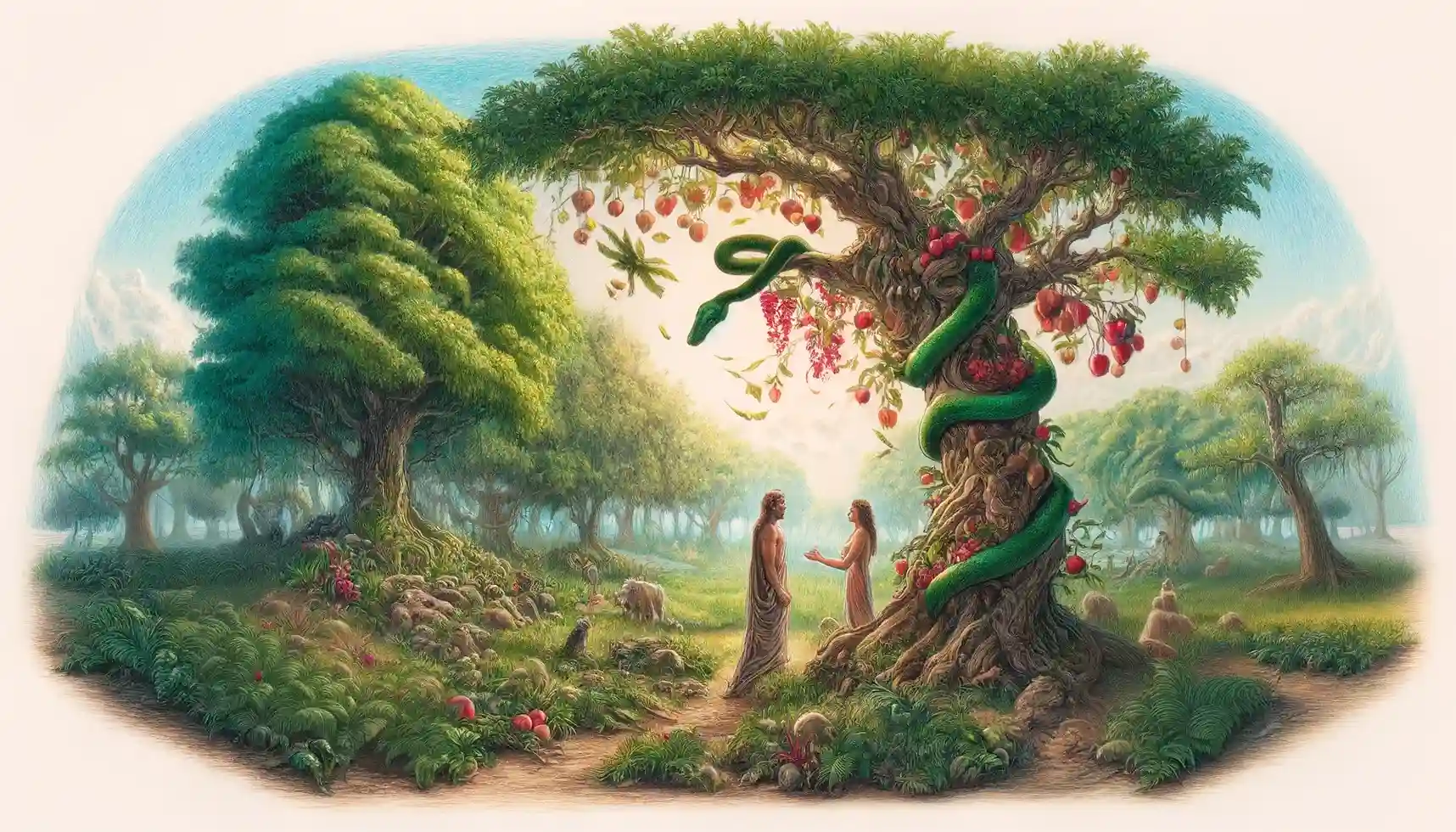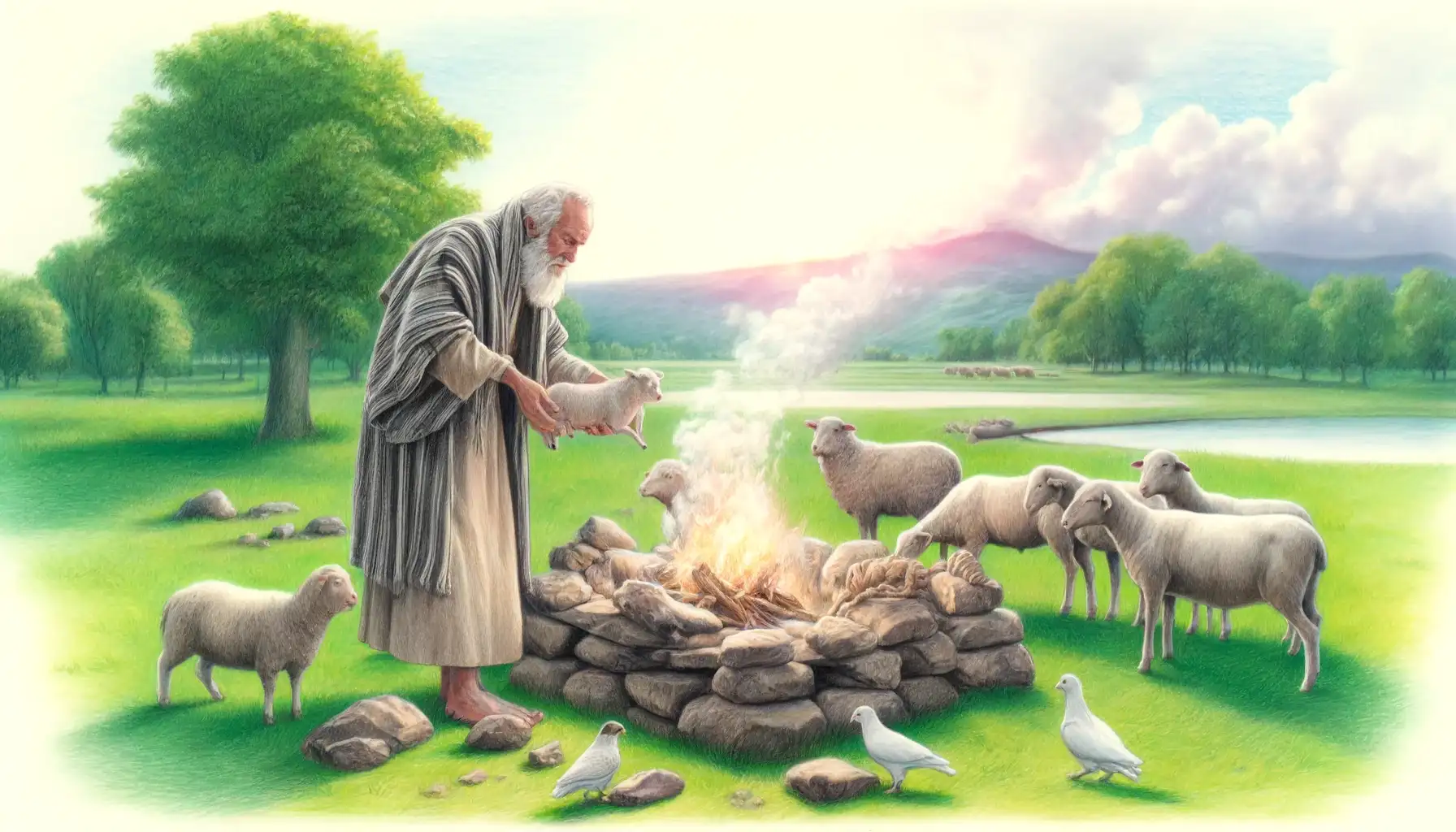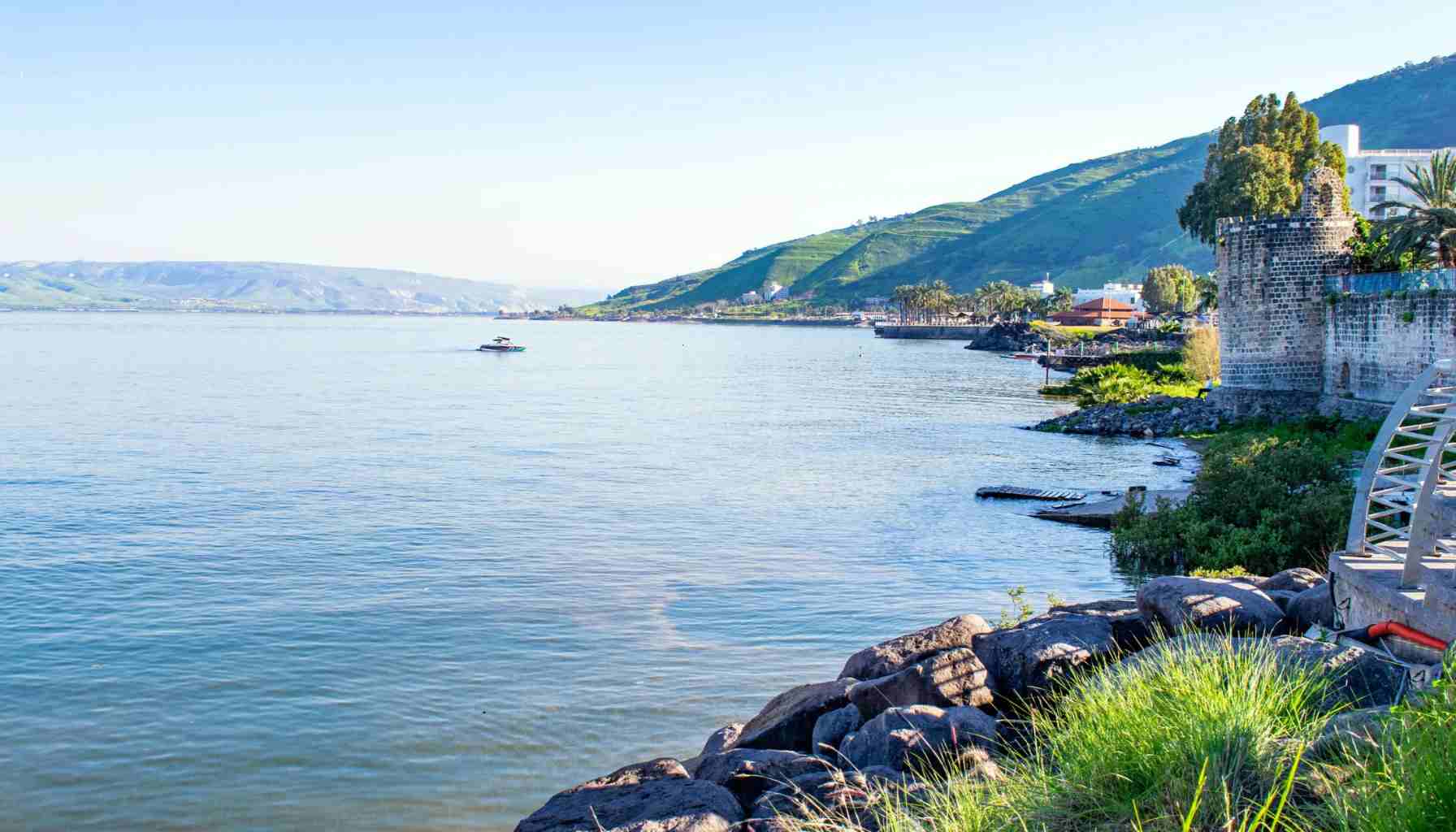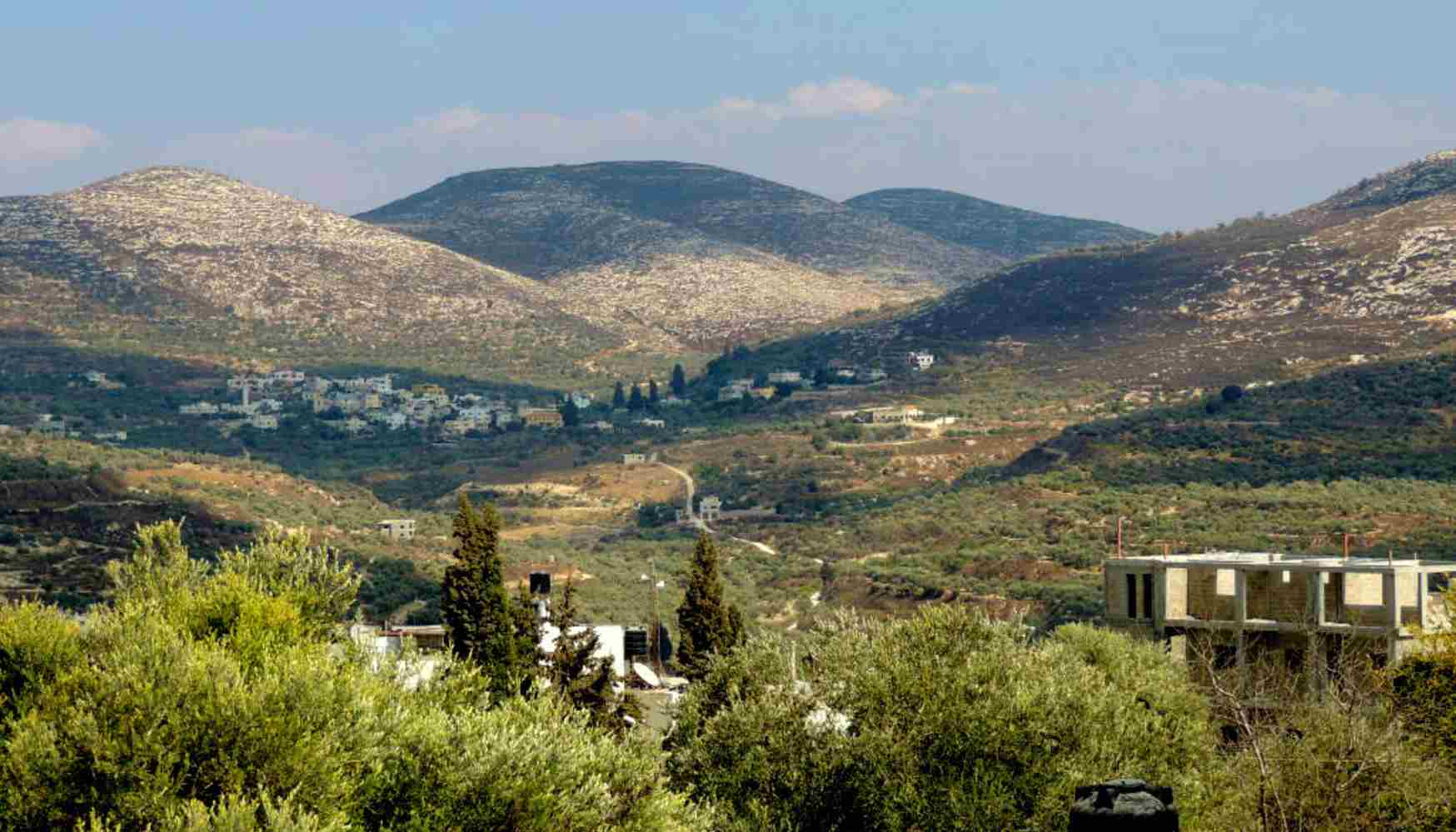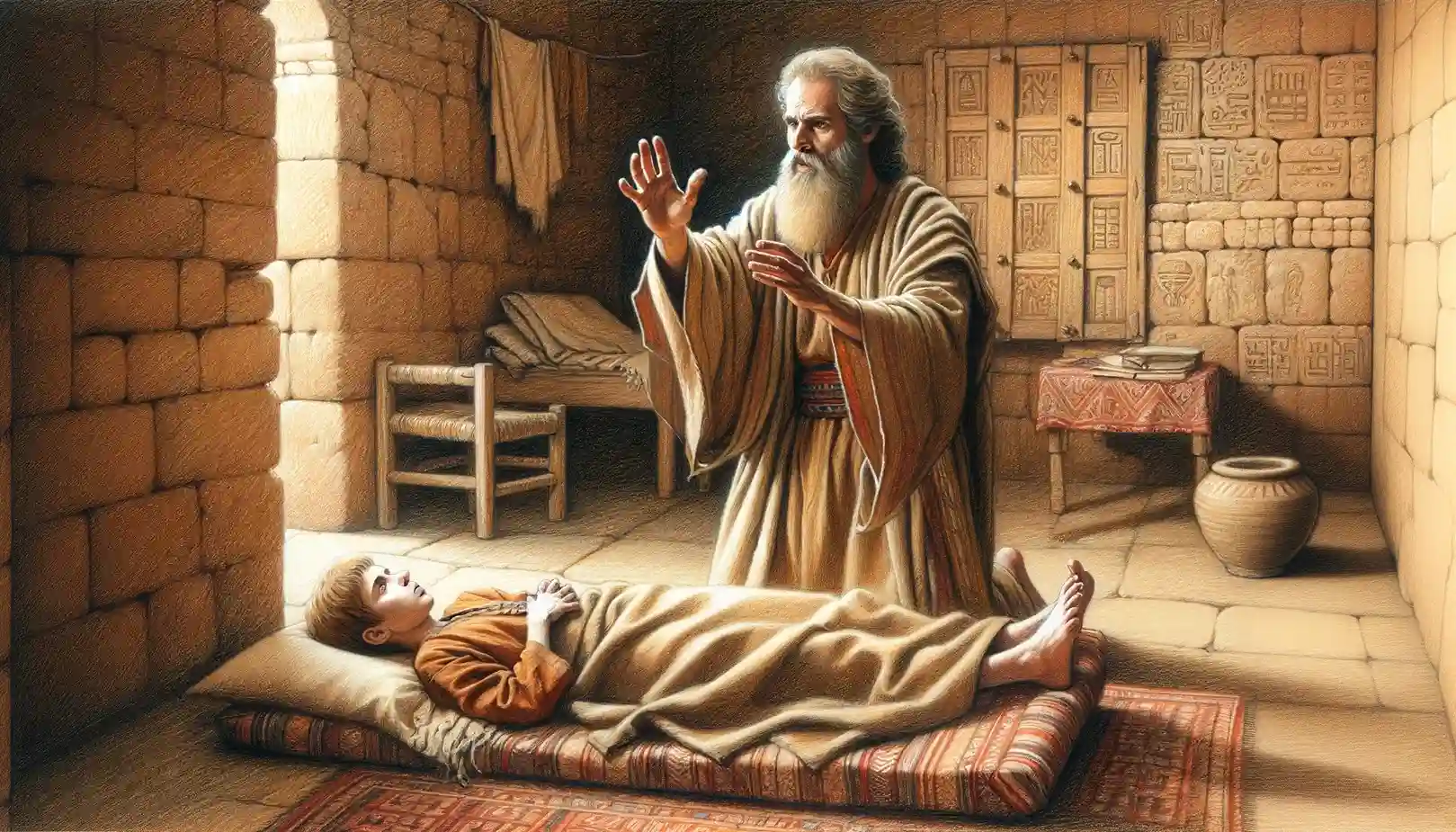In 2 Kings 2:14, Elisha’s parting of the Jordan River with Elijah’s mantle not only demonstrates his succession and the continuity of divine power but also symbolically reaffirms his prophetic authority, echoing the miracles of his predecessor and underscoring the enduring presence of God with Israel’s prophets.
In 2 Kings 4:32-37, the resurrection of the Shunammite’s son by Elisha, through an intimate and miraculous act of physical contact, highlights the divine power over life and death and underscores the profound faith of the mother, illustrating the close, reciprocal relationship between God’s prophets and those they serve.
In 2 Kings 4:1-7, the narrative of the Widow’s Oil Multiplied showcases Elisha’s prophetic intervention as he instructs a desperate widow to multiply a small jar of oil by faith and obedience, thereby enabling her to pay off her debts and protect her family from slavery, illustrating God’s miraculous provision and care for the needy.
In 2 Kings 2:19-22, Elisha performs a significant miracle by purifying the toxic waters of Jericho using salt in a new bowl, symbolizing divine purification and renewal, which restores the land’s fertility and ensures the well-being of its inhabitants.
Elisha, the biblical prophet and successor to Elijah, is renowned for his miraculous ministry, including purifying waters, multiplying oil, resurrecting the dead, and healing Naaman’s leprosy, reflecting his profound impact on Israel through divine interventions and his significant role in the nation’s political and spiritual realms.
Genesis 3 narrates the fall of humanity, wherein Adam and Eve, succumbing to the serpent’s temptation, disobey God by eating from the Tree of Knowledge of Good and Evil, resulting in their expulsion from Eden and the introduction of sin and mortality into the human experience.
Genesis 8:20-21 depicts Noah building an altar and offering sacrifices of clean animals to God, who, pleased by the aroma, promises never again to curse the ground or destroy all living creatures, despite humanity’s inherent sinfulness, thus establishing a foundational moment of covenant and grace between God and mankind.
The Sea of Galilee, also known as Lake Kinneret, holds profound historical, theological, and ecological significance, serving as a pivotal setting for Jesus’ ministry in the New Testament, supporting local economies through its fishing and tourism industries, and facing contemporary challenges related to water management and ecological sustainability.
Samaria’s historical journey is detailed and profound, beginning with its founding as the capital of the Northern Kingdom of Israel. It also plays a significant role in biblical stories. Today, it stands as a modern geopolitical flashpoint. This highlights a significant evolution in geographic, cultural, and theological aspects, continuing to impact current discussions and religious reflections.
In 1 Kings 17:22, the miraculous resurrection of the widow’s son by Elijah not only showcases God’s sovereign power over life and death but also reaffirms Elijah’s prophetic authority and deepens the widow’s faith in the true God.

